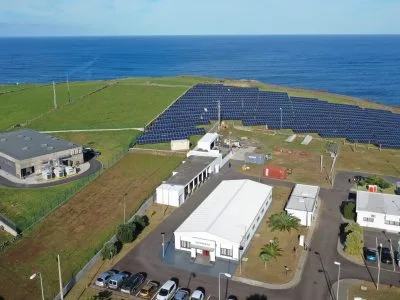Will shock change in Capacity Market auctions de-rating factor harm UK energy storage?
The UK government has published plans to drastically reduce the de-rating factor in Capacity Market auctions, causing havoc to planned and future energy storage projects. The most affected category of batteries, 30 minute duration and under, are to have their de-rating factor slashed by close to 80%.
The UK Capacity Market is how the National Grid ensures that the network has enough power to reliably supply its consumers with electricity by compensating electricity generators. The first Capacity Market auctions to feel the effect of the new rules will be the T-1 2018/19 and T-4 2021/22.
These new rules have an especially adverse effect on battery storage. The UK government Department of Business, Energy and Industrial Strategy (BEIS) made the decision to lower the de-rating factor. This was due to concerns that the amount of short-duration battery energy storage participating in the Capacity Market bids were not enough to ensure security of supply. 30 minute and under duration batteries are the most affected, with the de-rating factor increasing in increments of half an hour.

BEIS’ response to developers who expected the changes to be introduced more gradually acknowledges their concerns. However, they also stated that their decision is unlikely to change.The Department of Business, Energy and Industrial Strategy state that as the mean duration of stress events in the UK is 2 hours, prioritising longer duration battery energy storage is necessary.
BEIS stated, “We are satisfied that it is robust and represents the best basis upon which to de-rate storage in the upcoming auctions,”
“In relation to the T-4 auction, any shortfall in capacity would need to be re-procured in future CM auctions which would lead to an increase in costs to consumers. In relation to the T-1 auction, there would be no opportunity to replace any shortfall in capacity.”
The government estimate that continuing CM auctions using the current rating factors could cost consumers an additional £200 million over the next 15 years, a unacceptable figure. With approximately 7 GW of pre-qualified battery energy storage projects potentially affected, it is yet to be seen how the sector will react.
If you want to know more about this and other topics directly from end users of energy storage technologies join us at one of these annual events: The Energy Storage World Forum (Grid Scale Applications), or The Residential Energy Storage Forum, or one of our Training Courses.




